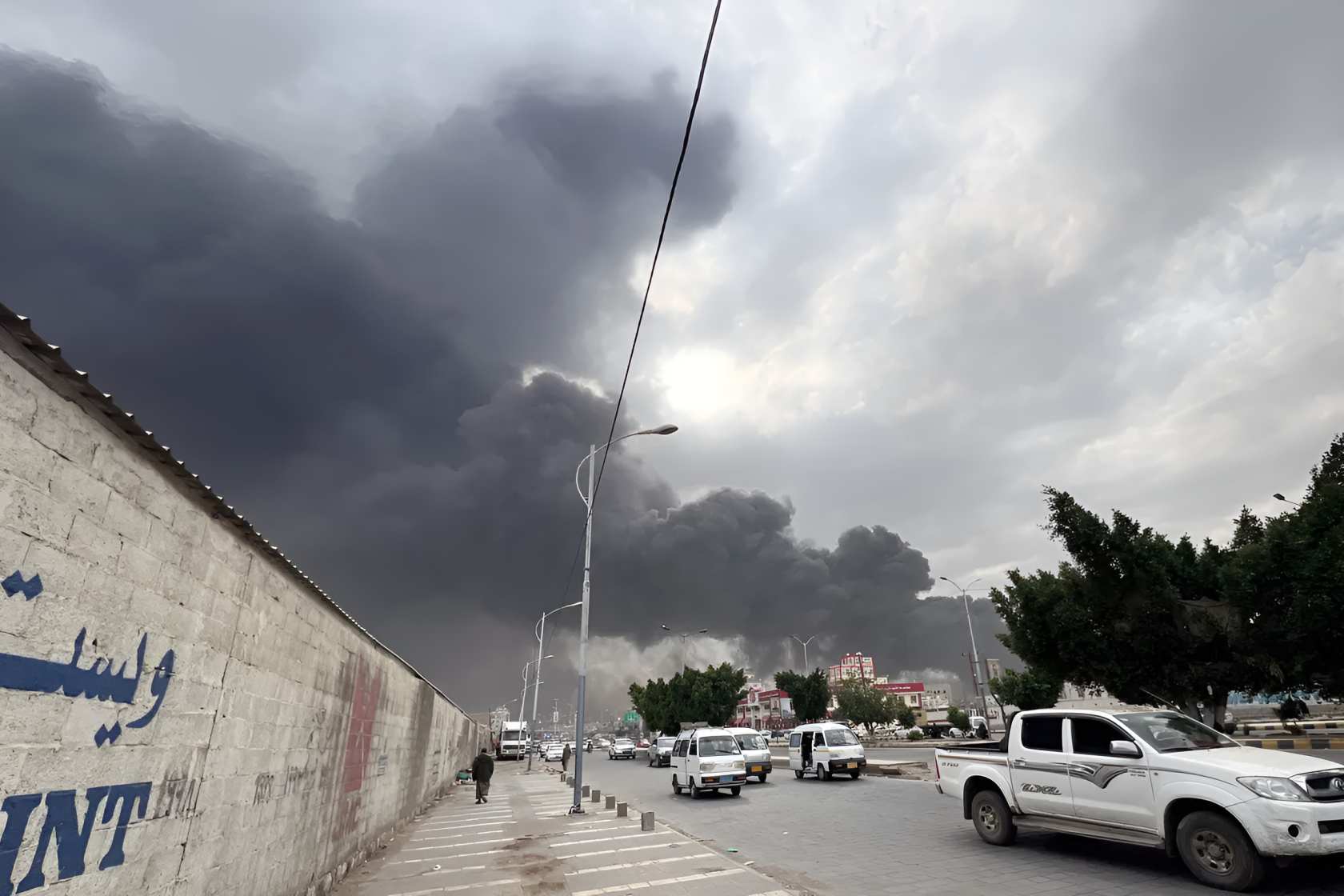In a major escalation of tensions, the Israeli military has launched an attack on Yemen's primary airport in the capital, Sanaa, completely disabling its infrastructure.
According to airport officials, the strikes on Tuesday targeted key facilities, including three civilian aircraft, the departures hall, and the runway, along with a nearby military air base.
An official source confirmed to AFP that the damage was catastrophic, describing the airport as "completely destroyed."
The move follows a missile attack by the Iran-backed Houthis that struck near Israel’s main airport, forcing a brief closure.
The Houthis have claimed that at least three people were killed in the attack, and they have vowed retaliation against Israel.
The ongoing conflict saw Israel responding with an airstrike on Yemen’s port city of Hudaydah on Monday, followed by further strikes targeting Sanaa the next day.
The military actions are seen as Israel's direct response to the missile attack launched by the Houthis that targeted Ben Gurion Airport in Tel Aviv on Sunday.
Israeli Prime Minister Benjamin Netanyahu issued a stern warning to the Houthis and other attackers, saying that anyone who threatens Israel will be held "accountable."
Speaking in a video statement, Netanyahu emphasized that those who choose to attack Israel "bear responsibility for his own blood," highlighting the Israeli military's calculated approach in deciding the timing and targets of its operations.
Meanwhile, the Houthis have dismissed Israel’s attacks as "failed terrorism" and expressed their determination to continue their support for Gaza.
Mohammed Ali al-Houthi, a senior figure within the Houthi movement, made a defiant statement on Houthi-linked TV, calling for Netanyahu’s resignation while vowing that "the response is coming."
He also reiterated that the Houthis would continue their military resistance.
The destruction at Sanaa airport was significant, with Yemenia Airlines confirming that three of its planes were destroyed. The Israel Defense Forces (IDF) confirmed the strikes, noting that the targeted facilities were being used by the Houthis for "transfer of weapons and operatives."
In addition to the airport, Israel also targeted power stations in Sanaa, which were described as critical infrastructure for the Houthis.
Furthermore, Israeli forces attacked the al-Imran cement factory in northern Sanaa, adding to the list of economic targets in the ongoing conflict.
The attack on Hudaydah earlier in the week included strikes on another cement factory, which has added to the escalating destruction of Yemen’s key infrastructure.
The port city of Hudaydah holds strategic importance as the second-largest port on the Red Sea and is vital for Yemen’s food imports, accounting for about 80% of the country's food supply.
The Houthis reported that Monday’s attack on the port killed at least four people and left 35 others wounded.
Although the Houthis blamed both the US and Israel for the attack, US defense officials have denied any involvement in the strikes.
The conflict has continued to intensify with each side accusing the other of worsening the humanitarian crisis in Yemen.
Israel’s military has previously targeted the Houthis in Yemen, including earlier airstrikes on a power plant and ports in January. In December, Israel also launched a previous attack on Sanaa airport.
The situation remains fluid as both sides brace for further retaliation, with the Houthis threatening a "comprehensive aerial blockade" on Israel in response to its expanding military operations in Gaza.
